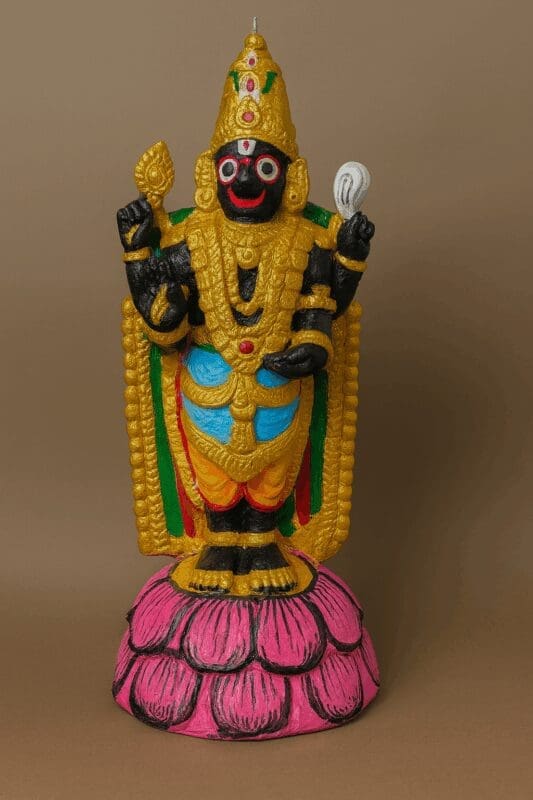Shri Jagannath purana
Sacred Offerings: Food and Feast at Jagannath Temple (Ch. 25)

Sacred Offerings: Food and Feast at Jagannath Temple (Ch. 25)
Chapter 25 of “Sri Jagannath Puran” takes us on a culinary journey through the Jagannatha Temple, exploring the intricate traditions surrounding food offerings and the sacred feast known as Mahaprasad. As a historian fascinated by the cultural and spiritual dimensions of food, this chapter offers a captivating glimpse into the culinary practices, mystical beliefs, and social significance associated with the temple’s offerings.
The Culinary Traditions of the Temple:
The chapter provides a detailed account of the various food offerings prepared for Lord Jagannatha, highlighting the meticulous care and devotion that goes into their creation. The text describes the specific ingredients, cooking methods, and rituals involved in preparing the Mahaprasad, the sacred food offered to the deity and then shared with devotees.
Historically, food offerings have played a central role in religious practices across cultures. In ancient India, food was seen as a sacred substance, imbued with symbolic meanings and capable of mediating between the human and divine realms. The “Sri Jagannath Puran” reflects this tradition by emphasizing the sanctity of the Mahaprasad and its role in fostering communion with Lord Jagannatha.
Mystical Dimensions of Food and Feasting:
The chapter goes beyond a mere description of culinary practices, delving into the mystical dimensions of food and feasting within the Jagannatha tradition. The Mahaprasad is not merely seen as physical nourishment but as a spiritual offering, imbued with divine blessings and capable of purifying the soul.
The act of partaking in the Mahaprasad is considered a sacred act, a form of communion with the deity. The text suggests that consuming this sacred food can lead to spiritual upliftment, the fulfillment of desires, and even liberation.
Social Significance and Community Building:
The chapter also highlights the social significance of the Mahaprasad. The food is prepared and offered without any discrimination of caste or social status, symbolizing the equality of all beings before the divine. The shared consumption of the Mahaprasad fosters a sense of community and reinforces the bonds among devotees.
Historically, communal feasting has played an important role in strengthening social ties and promoting a sense of belonging. The “Sri Jagannath Puran” reflects this tradition by portraying the Mahaprasad as a unifying force, bringing people together in a shared act of devotion and feasting.
Connecting with the Present: The Enduring Tradition of Mahaprasad:
The tradition of Mahaprasad continues to be an integral part of the Jagannatha Temple’s rituals today. The sacred food is prepared daily in massive quantities, offered to the deity, and then distributed to devotees, who consider it a blessing to partake in this divine feast.
For the modern reader, this chapter offers a glimpse into the rich culinary and spiritual heritage of the Jagannatha tradition. It encourages us to appreciate the symbolic meanings associated with food offerings and to recognize the power of communal feasting to foster spiritual connection and community building.


















